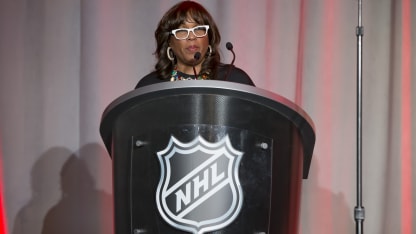NHL's next steps key in fight against racism, Davis says
League VP focused on what happens now after outcry over death of Floyd

© Dave Reginek/Getty Images
League VP focused on what happens now after outcry over death of Floyd

© Dave Reginek/Getty Images